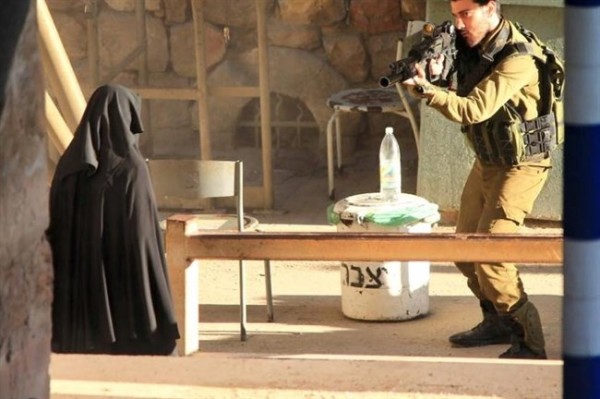Tag: Demonstration
-
Continuing injustice: One year since extrajudicial execution of Hadeel al-Hashlamoun
22nd September 2016 | International Solidarity Movement, al-Khalil team | Hebron, occupied Palestine One year has passed since the extrajudicial execution of the Palestinian student Hadeel al-Hashlamoun by Israeli forces at Shuhada checkpoint in occupied al-Khalil (Hebron). One year without justice for the family of the slain teen – one year of complete lack of…
-
Israeli soldiers invade Bil’in in attempt to break the people’s spirit
22nd September 2016 | International Solidarity Movement, Ramallah-team | Bil’in, occupied Palestine Approximately fourty soldiers invaded the central West Bank town of Bil’in early morning of September 22nd. The army confiscated at least three laptops, one hard-drive, five phones, and two camera memory cards from the homes of six local activists. Bil’in community members feel this…
-
Two Palestinian killed in Hebron and one wounded in Jerusalem in less than 12 hours
19th September 2016 | International Solidarity Movement, al-Khalil team | Hebron / Jerusalem, occupied Palestine On Monday, 19th September 2016, two Palestinians have been gunned down by Israeli forces in occupied al-Khalil (Hebron), and one in illegally annexed East Jerusalem in less than 12 hours. Early in the morning, in the Old City of occupied…


